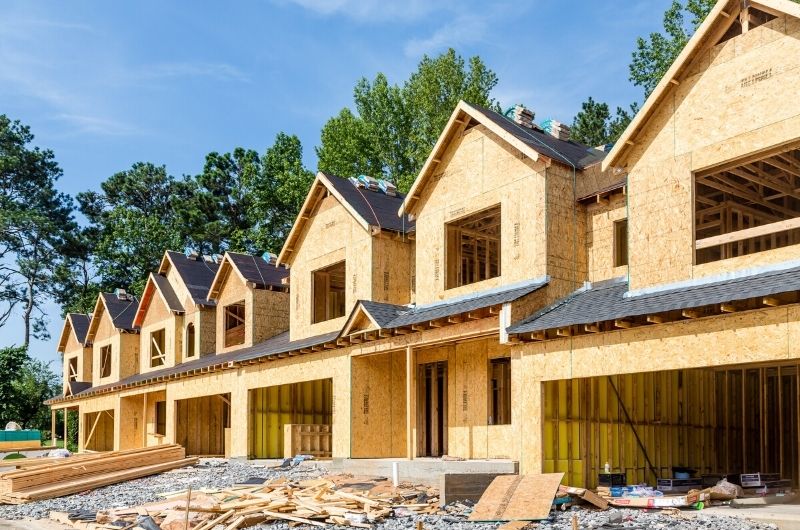
Recent data show a surge in new construction homes. A tight supply of existing homes plus a coronavirus-inspired preference for lower density in the suburbs may be fueling explosive growth in homebuilding. How this growth affects real estate investors who intend to rent the property to generate income is an open question. Investors should weigh the pros and cons of investing in new home construction before purchasing a newly built home.
Pros of Investing in New Construction
Everything in a newly built home is, well, new—appliances, technological amenities, and even the community where the homes are located are likely to be brand new. Renters, like home buyers, prefer the latest innovations in materials and design, including smart features that can regulate lights, HVAC systems, and door locks.
New-construction homes have their settling-in period where maintenance issues may still turn up; for example, nail-pops in drywall and unexpected drainage issues appear. Generally, however, a new-construction home requires less maintenance over time and less upfront investment in repair than an existing home. These homes tend to attract renters willing to pay a premium for pristine paint, new appliances, and granite countertops.
New builds are move-in ready when purchased, and very little additional investment would be necessary to prepare them for their first tenants. Overall, investors trade a higher retail price for lower maintenance costs. New homes attract stable tenants who prefer a community with amenities like good schools and ample outdoor recreation. New homes frequently offer extended warranties, keeping the original builder in the picture for repairs if defects appear.
Cons of Investing in New Construction
High demand coupled with the sparkling condition of new builds means paying retail prices for new homes. Paying a higher price in turn affects the price a property owner can charge in rent and still expect to see a reasonable return.
Demand, however, can be fickle—the stop-and-go-and-stop reopening of local economies across the US makes employment insecure; new rounds of layoffs are announced regularly. This may affect renters’ ability and willingness to pay a premium for new construction homes. Moreover, a new development that stalls because of changing market conditions becomes immediately unattractive—finished homes sit next to empty lots or half-finished houses waiting for buyers to return.
There are unknowns with new construction that don’t apply to existing homes. New construction has no rental history to reference. Future property tax rates are unknown.
If you are considering investing in new developments, keep these tips in mind:
- Research the builder—check out previous developments and find out plans for the community
- Work with an experienced real estate agent who can fill you in on the builder and local trends in new construction
- Use a home inspector—just because the home is new doesn’t mean the home is perfect
- Read the fine print—go over the builder’s contract and warranty with a fine-toothed comb to make sure things like foundation cracks, poor drainage, or leaks are addressed and that you have a guaranteed completion date
Residential property management companies in Atlanta like Excalibur Homes can help you weigh the pros and cons of investing in new home construction vs. existing homes.

